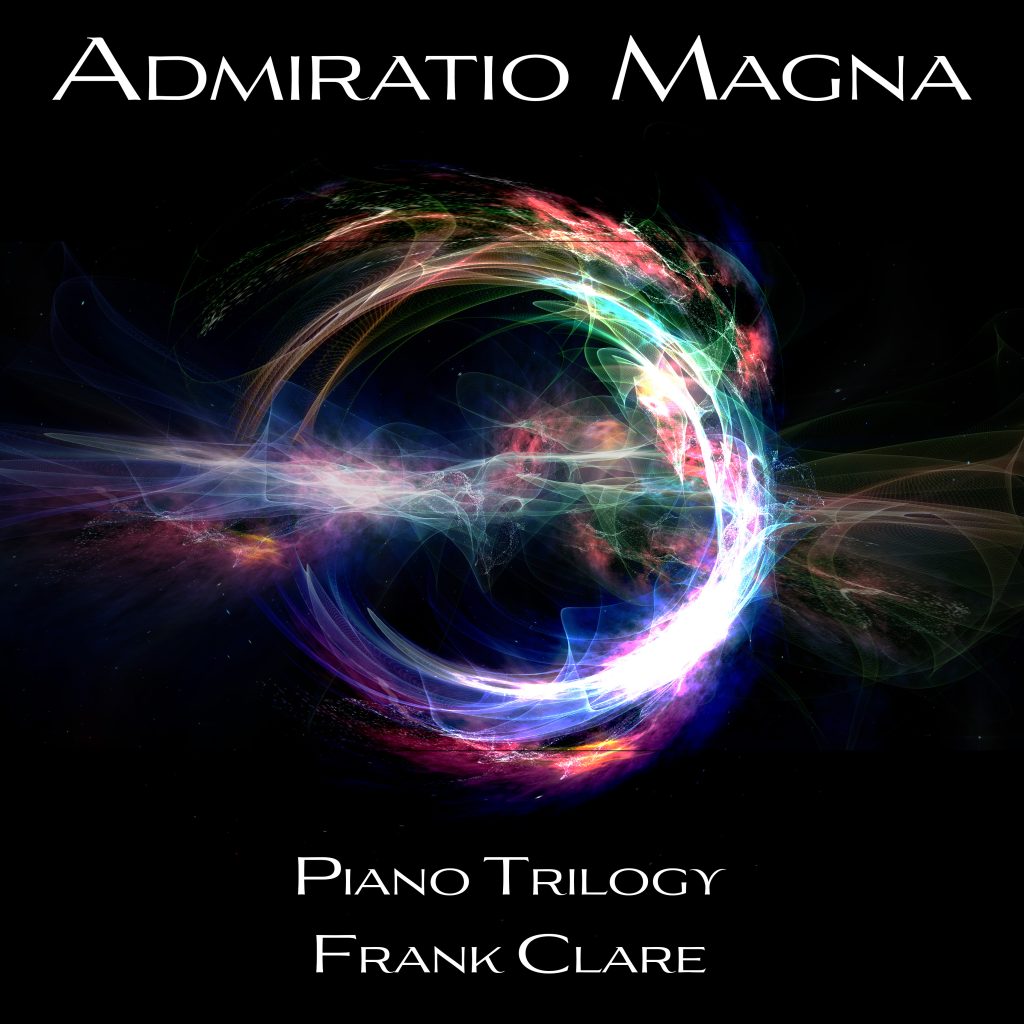
Frank Clare is a neoclassical pianist and composer. His debut album ‘Admiratio Magna’ is inspired by his appreciation for 19th-century classical music, philosophy, science, and mindfulness. The album explores themes including the cycles of creation and the power in stillness, and curiosity. Clare began playing piano when he was 15. Finding he was better at composition than playing other peoples’ music, he did just that. Moving every couple of years because his father was in the army, Clare absorbed the places he lived in as he grew up. He says, “I feel that all those places are part of me, and at the same time that I come from nowhere.” His first stage performance was not as a musician but in acting and making people laugh, which he enjoyed. He says of his music, “A lot of my music tells stories and some of it’s satirical. Parts of ‘Admiratio Magna’ are satires of classical music, and at the same time, it’s a tribute to classical music. I’ve written in several styles, Americana-ish, jazz-ish, punk-ish, New Wave-ish, classical-ish. I think my music is naive. I moved to Prague in 2016. I’m of Czech descent. I felt that after all the moving while growing up I could make a home where my ancestors came from. I love Prague. I love living in Europe. I’m surrounded by history, architecture, beauty. Being here influences me and helped me compose ‘Admiratio Magna’. I don’t sit down and write music. I get an idea and over time it grows. It could take a week, or it could take 30 years.”
Perhaps because he did composition and playing other peoples’ music the other way around, than is usual, composing first, Clare’s music is deeply personal and also very creative. He brings attention to detail and passion. Something that is striking is the use the pauses and spaces Clare naturally leaves between phrases, as if there is time to pause and take a breath, before allowing the music to capture your senses once again.
Clare sums up his feelings, “ ’Admiratio Magna’ is Latin for The Big Surprise. What blows me away is that anything exists at all. Matter. You, me. Washing machines. The Grand Canyon, the Milky Way. Chocolate croissants. Anything. Everything. The Big Surprise. From nothing to everything and back again. ‘Admiratio Magna’.”
The album is divided into three parts – the first part comprises three pieces, ‘A Gathering of Possibilities’, ‘Inceptus’, and ‘The Bells of Noumania’, and is called Vox Intus Omnia (The Voice Behind Everything). These pieces create the start, a sense of the verge and being on the edge or, as Clare puts it, “the space between heartbeat and breath.”
‘A Gathering of Possibilities’ is thoughtful, packed with the spaces ‘in which to breathe and dream’ and the music develops from spaced notes to a melodic and intrinsically linear piece of movement. As the piece develops, elements are added and create a textured, imaginative concept of a number, yet still containing the peace and space craved by many. There are rhythms and depth, space, and patterns.
‘Inceptus’ is warm, and melodic in parts with those well-placed spaces still present and serving to provide punctuation and annotation to the music. (Think Bach in places). The repeated motif, worked in different mannerisms hints at connection through of thoughts and different approaches.
‘The Bells of Noumemania’ is delicate, with twinkling bell effects from the right hand, with chords entering to give breadth and depth while in the second half the melodic left hand provides texture and colour to the music.
Part Two is one extended number, ‘La Grande Sorpresa’ and represents ignition, excitement, and catastrophe. It is packed with grand phrasing and drama. It is inspired by Italian opera, although phrases from Beethoven’s ‘Fur Elise’ can be heard now and again. There are constant surprises throughout the number, not least in the explosive ascents and descents of the keys, done loudly and softly, offering contrast and textures to the notes as the phrases weave in and around during the track. There are phrases reminiscent of Saint-Saens and influences from a number of compositional stylings that create a beautiful track with once again, space to reflect and draw in breath.
Part Three is called Apotheosis and starts with the delightful ‘L’Extase’ (ecstasy). With a French flavour, the track is light, twinkly, and playful. It seems to celebrate life (and most of the notes on the right of the piano keyboard at one point or other). ‘Die Apotheose’ is inspired by German classical music (according to Clare). It is dramatic, rich, and darker than previous tracks. There is a sense of change in the piece, as it works its way through a lighter central section and towards the dramatic ending. It signifies apocalyptic changes and transformation. ‘Goodbye Hello’ is a gorgeous piece that reminds us that there are new starts after an ending and hope for new beginnings.
Throughout the album, there are ghosts of past classical musicians, but never do they solidify enough to become the central influence. Their influences touch and grace the tunes but do not change them to become their music – the music is all Clare.
This hauntingly good work is classically derived music, with a deeply personal touch. The listener has to be awake to new sounds, a different approach and one that is subtle and, like many music masters of the past, knows exactly how to use the space in music to add to the lyricism.




